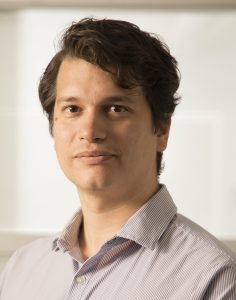Economist Michael Carlos Best Leads Research on Jordan’s Taxation and Public Spending
For Immediate Release
Media Contact: Sophia N. Johnson, sj2482@columbia.edu, 212-854-1566
Best will establish Jordanian Economic Policy Research Initiative funded by Columbia University
 Michael Carlos Best, assistant professor of Economics at Columbia University, was awarded the President’s Global Innovation Fund for the Jordanian Economic Policy Research Initiative, a project that will study economic policy in Jordan with a focus on taxation and public spending.
Michael Carlos Best, assistant professor of Economics at Columbia University, was awarded the President’s Global Innovation Fund for the Jordanian Economic Policy Research Initiative, a project that will study economic policy in Jordan with a focus on taxation and public spending.
“The initiative would have two core missions,” says Best. “First, to perform frontier academic research on real policy questions facing the Jordanian government today. Evidence will then be used to make immediately usable policy recommendations to the government. Second, a teaching mission which both focuses on capacity building within the Jordanian government through workshops on evidence-based policy design and policy impact evaluation, and also bringing Columbia graduate students interested in economic policy in low and middle-income countries to Jordan to work with government officials on real-world policy problems.”
Professor Safwan Masri, EVP for Global Centers and Global Development at Columbia University and director of Columbia Global Centers | Amman, added: “This project supports the Jordanian government’s efforts to address grave economic challenges through academic research and informed policy interventions. Columbia is uniquely positioned, through its network of global centers, to garner critical insights into issues confronting different regions of the world, and is committed to positively contributing to resolve them.”
Launched in March 2013 by President Lee C. Bollinger, the President’s Global Innovation Fund offers support for faculty to develop projects and research collaborations within and across the University’s nine Columbia Global Centers, to increase global opportunities and scholarly engagements for research, teaching and service. Projects receiving awards focus on a wide array of topics, including water availability and climate change, colonial medicine and literature, economic policy, and health and human rights. Many are highly collaborative, with faculty members working across University departments and schools, and partnering with other academic institutions, non-governmental organizations, and research consortia.
These awards, selected by a review committee of senior faculty, follow five previous rounds of grants from the President’s Global Innovation Fund that have supported 72 projects. Collectively, these projects play an essential role in realizing the potential of the Columbia Global Centers to create new opportunities for faculty and students, and in defining in tangible ways what it means for Columbia to explore new frontiers of knowledge.
The Columbia Global Centers are a network of regional hubs around the world, created to enhance the quality of research and learning at the University. The nine global centers are located in Amman, Beijing, Istanbul, Mumbai, Nairobi, Paris, Rio de Janeiro, Santiago, and Tunis. President’s Global Innovation Fund projects may be based in one or several of these cities, or in other locations in the centers’ regions that can leverage their global network of resources, support, counsel, and a network of contacts to concretize and supplement existing research and programming goals.
Best’s research focuses on development and public economics. He holds a master of Philosophy in economics (distinction) from the University of Oxford, a master of Research in economics (distinction) from the London School of Economics, and a Ph.D. in economics from the London School of Economics.
About Columbia | Economics
The Department of Economics offers a general economics major, in addition to five interdisciplinary majors structured to suit the interests and professional goals of a heterogeneous student body. All of the undergraduate programs have different specific requirements but share the common structure of core theoretical courses that provide the foundation for higher-level elective courses culminating in a senior seminar. Graduate students receive training within an outstanding research environment, supported by members of faculty who are leading research in their fields.
In 2017, the Department offered 42 undergraduate courses. A total of 4765 students were enrolled, 742 in the Department’s majors. The M.A. program provides a technical and rigorous approach to the study of economics. In addition, the doctoral program receives approximately 1,000 applications each year for an incoming class of roughly 25 students. The Department has played a prominent role in the development of economic thought. It will continue to through its faculty and students, and contribute to a better understanding of economic activities and the elaboration of policy.
About Columbia Global Centers | Amman
Columbia Global Centers | Amman was established in March 2009 as one of the first in a network of eight global centers around the world located in Amman, Beijing, Mumbai, Paris, Istanbul, Nairobi, Santiago, Rio de Janeiro, and Tunis.
The Amman Center serves as a hub for programs, research and educational initiatives throughout the Middle East; providing Columbia faculty and students with opportunities to expand their research and scholarship, but also as a conduit for knowledge exchange and skill development with local and regional academics, experts and practitioners.
###

